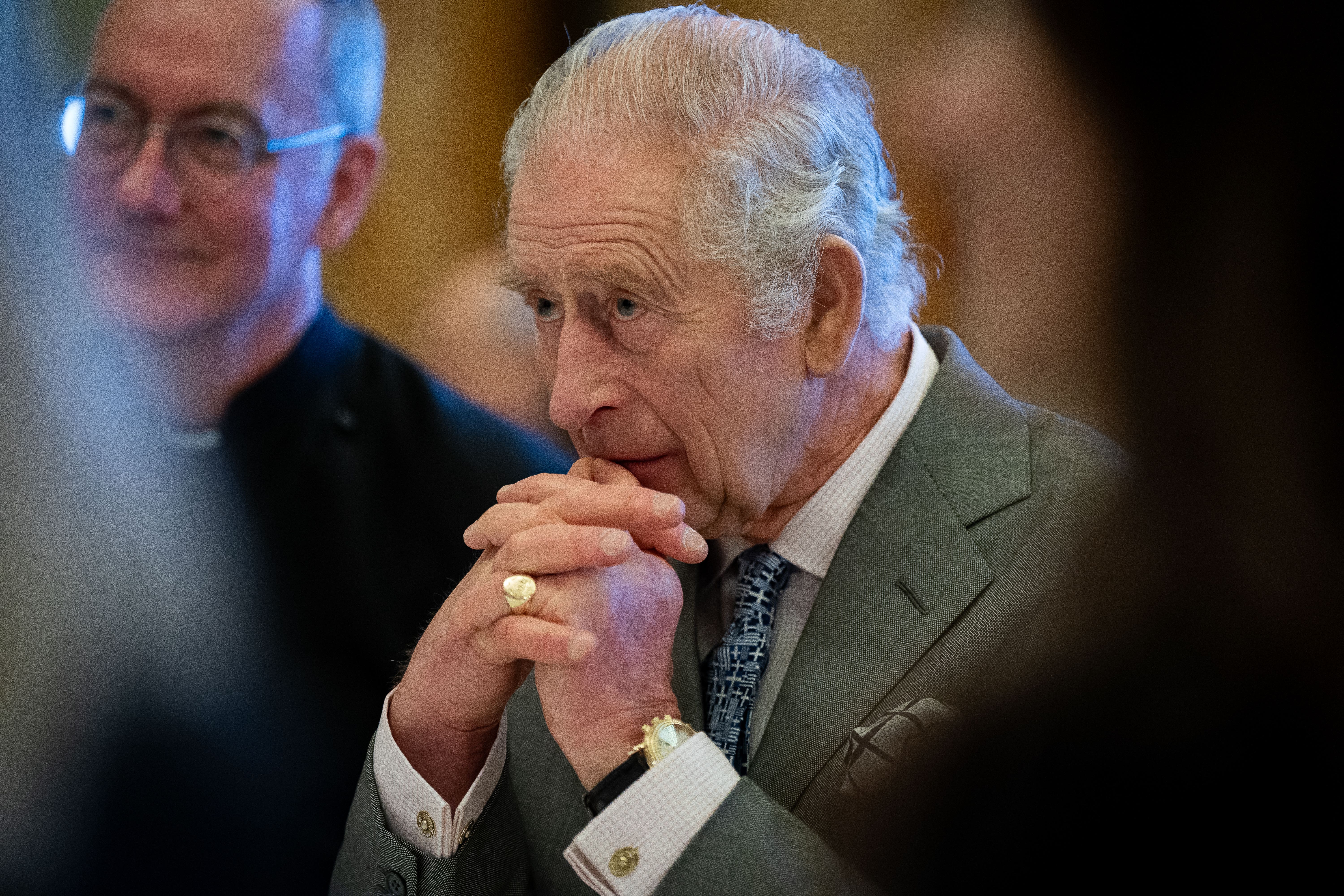What is an enlarged prostate, which the King is undergoing treatment for?
Benign prostate enlargement is not a cancer, medics say.

An enlarged prostate is common in men over the age of 50 and does not usually pose a serious threat to health, according to the NHS.
Referred to by medics as benign prostate enlargement (BPE), the condition is not a cancer and those with it are not at a higher risk of developing prostate cancer.
Symptoms are often mild but can be “very troublesome” for some, the NHS website says.
When the prostate becomes enlarged, it can put pressure on the bladder and the urethra, which is the tube that urine passes through.
This can cause someone to urinate more often and experience difficulty when doing so.
It is not fully understood why some men develop the condition, but it is believed to be linked to hormonal changes as a man gets older.
Patients may need to have several tests for the condition to rule out the possibility they have another illness, such as prostate cancer, according to the NHS.
Some of these tests can be done by a GP but others may need to be completed in hospital.
People with mild symptoms tend not to need immediate treatment and a doctor will decide whether to keep checking up on the patient from time to time.
They may be advised to drink less, consume fewer artificial sweeteners and exercise more often.
Medicine to reduce the size of the prostate and relax a patient’s bladder may be recommended to treat moderate to severe symptoms.
Surgery tends to only be recommended for people with moderate to severe symptoms that have not responded to treatment, the NHS site says.
The condition can cause urine infections as well as chronic and acute urinary retention.
Chronic urinary retention is when someone cannot empty their bladder fully.
It is usually painless, but can stretch the bladder muscle and make it weaker.
Acute urinary retention (AUR) occurs when someone can suddenly no longer urinate at all.
It also causes lower tummy pain and swelling on the bladder that a patient can feel with their hands.
Anyone with symptoms of AUR should go to A&E immediately.
Bookmark popover
Removed from bookmarks